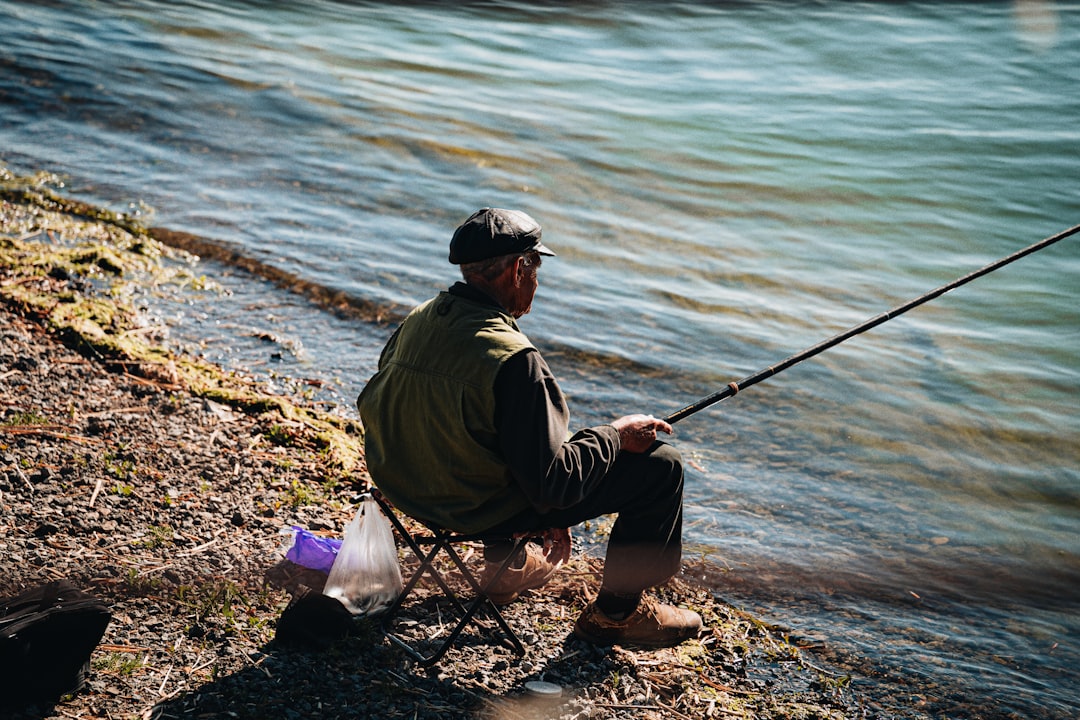When you think of the Fishing skill in Old School RuneScape (OSRS), chances are that excitement isn’t the first word that comes to mind. Often associated with relaxed gameplay, fishing is a go-to activity for players looking to AFK, chat with friends, or multi-task while watching YouTube. But for a brief and glorious moment, an accidental side effect in a RuneLite plugin transformed this otherwise laid-back skill into something you’d expect from a high-octane rhythm game like DDR or Beat Saber.
Yes, you read that right — a plugin meant to provide a small convenience somehow managed to inject a sense of rhythm, timing, and even *adrenaline* into one of the calmest activities in OSRS. Here’s how it happened.
The Evolution of Fishing in OSRS
Before diving into the plugin mishap, let’s establish some background. In its original form, fishing in OSRS operates on simple mechanics:
- You find a fishing spot (based on the type of fish you want).
- You click it.
- You wait for a fish to bite, repeat until inventory’s full, and bank or drop the fish.
There are ways to level up fishing faster — such as fishing in specific locations like Barbarian Village for fly fishing — but real-time interaction tends to be minimal. Players often rely on timers or simply attention span to maintain efficient catch cycles. Then came plugins offered through RuneLite, the most widely used third-party client for OSRS. Designed with quality-of-life improvements in mind, some plugins subtly enhance the gameplay experience — showing timers, highlighting fishing spots, or counting fish caught.
Enter the plugin that altered everything.
The Plugin in Question: Fishing Spot Indicators
The plugin wasn’t meant to revolutionize the skill. Called something simple like Fishing Spot Indicators, it set out with a basic purpose: highlight active fishing spots with more visibility and maybe add expected despawn timers. But thanks to an unintended interaction with audio cues and spot movement tracking, something changed.
Users began noticing that with this plugin enabled — particularly the customized “despawn sounds” — every fishing spot emitted a short audio cue exactly as or shortly before it was about to disappear.
Here’s where the rhythm element came in. With certain fishing methods (like barbarian fishing or drift net fishing), the plugin’s timers naturally caught onto an unintended level of harmony. Each spot vanished and reappeared with consistent musical timing.

Players could now anticipate not just visually but *audibly* where and when the next interaction needed to happen. By setting personalized sound files — from metronome ticks to drum kicks or even synth loops — the plugin essentially let you play to the beat. And it worked. Efficiency increased, attention was maintained far longer, and a mundane activity received a striking layer of immersion.
How It Felt Like a Rhythm Game
Community members began comparing it to actual rhythm games. Here’s a breakdown of the rhythm-game-like elements that organically emerged:
- Predictable Beat: Fishing spot timers aligned closely with visual/audio cues, establishing a regular rhythm pattern.
- Pattern Recognition: Players needed to move spots in an almost choreographed pattern. It felt like choreo, especially in dense areas like the Fishing Guild.
- Player Feedback: The success of clicking before someone else (in crowded areas) and hearing the reward sound provided a satisfying feedback loop akin to landing a “perfect” note in a rhythm game.
Some players even reportedly created full-on mini-sessions where they’d fish for 10-15 minutes solely “on beat,” challenging themselves not to break rhythm. Reddit and Discord posts soon surfaced, sharing audio files and best practices to “sync your fishing.”
The Community’s Reaction
The OSRS community is known for its sense of humor and adaptability. When this pseudo-rhythm game glitch made the rounds, players responded in classic fashion — memes, experiments, and challenges galore.
Notable Reddit threads emerged with titles like:
- “When You Fish So Hard You Drop the Beat”
- “Fishing XP per Minute Doubled Thanks to Techno Beats?”
- “Rate My Drum Synth + Leaping Trout Tempo Combo”
Meanwhile, YouTubers in the community jumped in, producing videos demonstrating how they’d converted plug-in cues into audio loops that turned OSRS fishing time into full-blown beat-making sessions.
Image not found in postmeta
RuneLite Developer Response
Unsure whether this was a bug or a brilliant unintended feature, many players wondered how RuneLite would respond. Eventually, developers acknowledged the “bug,” but interestingly, they didn’t patch it outright. In the update changelog about a month later, a short line appeared:
“Adjusted audio cue timing in Fishing Spot Indicators for better consistency. You may notice it’s helpful for… rhythm?”
This tongue-in-cheek comment validated the community’s enjoyment while improving the plugin’s functionality. Since then, several forks of the original plugin have emerged, offering additional rhythm-friendly features, like BPM (beats per minute) customization and syncing with external music.
Why This Accidental Feature Matters
This little story holds much more significance than one might think. It shows how emergent gameplay — sometimes born from accidents — can invigorate a decade-old game. OSRS thrives because of its community, commitment to updates, and the flexibility of its tools like RuneLite.
Here’s what this incident revealed:
- Unexpected Depth: Even the most straightforward skills can become layered and dynamic with creative input.
- User Engagement: Mods and plugins do more than add convenience; they can reshape how a game is perceived and enjoyed.
- Creativity Under Constraints: Players found rhythm and challenge in something designed to be passive, transforming it into art and interaction.
Recreating the Experience
If you missed the original sensation but want to try it today, here’s how to emulate it as closely as possible:
- Install the RuneLite client.
- Enable or install the Fishing Spot Indicators plugin (or custom forked versions).
- Assign rhythmic audio cues — either from personal music files or using synthesized beats online.
- Choose an area with predictable cycling fishing spots, like Barbarian Fishing or Drift Net fishing.
- Play music in the background that matches your chosen BPM, and try syncing your actions to it.
You’ll find that what once was a zoning-out skill can become an immersive, almost meditative challenge. It’s not only fun — it’s efficient.
Final Thoughts
Old School RuneScape’s longevity is constantly fueled by its culture of experimentation. What began as a simple plugin rapidly evolved into one of the most charming and unexpected gameplay twists of recent memory. For a few weeks, something as mundane as fishing became a canvas for creativity, rhythm, and just plain fun.
So next time your fishing grind starts to feel monotonous, remember: all you need is a beat, a plugin, and the spirit of the rhythm.
I’m Sophia, a front-end developer with a passion for JavaScript frameworks. I enjoy sharing tips and tricks for modern web development.
